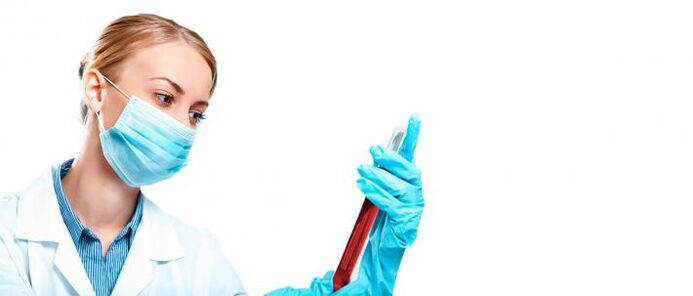
Over 250 species of various parasites can survive in the human body! According to statistics cited by the WHO, about 4. 5 billion people are infected with parasites, and this figure includes not only residents of "third world" countries, it has been established that more than 30% of allinhabitants of Europe are carriers. A person can live in peace and not even suspect that intruders have already settled in his body. So maybe they are safe because they are not annoying? But even taking into account this advice, it is necessary to be able to identify the parasites, determine their type and know how parasitoses are treated and what carelessness can turn into.
Why can parasites start?
How do parasites appear in the human body, after all, they cannot come from the air? In fact, the mechanism of infection is simple - most often unwashed hands become the cause of infection, from where the larvae enter the gastrointestinal tract (gastrointestinal tract), where they transformsuccessfully in adults and remain in the human body, safely devouring all that is most valuable: vitamins and minerals. . .

In some cases, the parasite reaches a person through sexual contact. So, you can get infected with trichomoniasis, pinworms and ploshchitsy (commonly - pubic lice). There is a high risk of infection from pets and personal hygiene items (washcloths, towels).
It is easy to see that the causes of parasites in the body are quite prosaic. In most cases, children are infected, unless the infection is sexually transmitted, of course.
We have determined the reasons, now we will find out what signs of parasites in the body will tell you that you need to start treatment.
How to determine the presence of parasites in the body?
If the vital activity of the "neighbors" is asymptomatic, some signs of parasites in the human body can still be detected without special diagnosis. These signs include:
- Flatulence;
- Bloating;
- Constipation;
- General weakness, as the body does not receive important substances, providing them with parasites;
- A white discharge in women indicates trichomoniasis;
- Developmental delay in children;
- The appearance of allergic rashes and dermatitis on the skin;
- Mental exhaustion with prolonged infection.

While these signs are only indirect indications of the presence of parasites, they can be a powerful reason for a full diagnosis.
Clinical diagnosis
For many years, the diagnosis of parasites in the human body was limited only to the analysis of feces for the presence of roundworm eggs. This approach made it possible to determine the infection only at the final stage of the disease. Currently, diagnostics have improved dramatically. To identify parasites in the body, this type of research is used today:
- ELISA or enzyme-linked immunosorbent assay. Allows the presence of the corresponding antibodies to be detected;
- Bloodscopy;
- ART - vegetative resonance test;
- Bioresonance therapy.
Private clinics are increasingly offering new methods, devices for the diagnosis of parasitosis, so it is very important to consult an immunologist for advice. The specialist will tell you how to check the body for the presence of parasites in the most informative way.
It is very important to timely identify the presence of parasites, their prolonged stay in the body can adversely affect human life. There are frequent cases where the infection is fatal.

Are all parasites harmful to humans?
Recently, scientists have started to study the relationship between autoimmune diseases and the vital activity of parasitic worms. The conclusions reached by American researchers were shocking!
It has been found that parasites living in the human body can also be beneficial by boosting the immune system.
For many centuries, people have coexisted with parasites, forming a specific symbiosis. Now that the number of people infected has dropped dramatically, people are more susceptible to autoimmune diseases.
Beneficial parasites in the human body activate its own immune regulation, which causes the host to receive double protection. Thus, intestinal worms are able to suppress inflammatory processes in the body. Research on this relationship continues to this day. It is impossible to predict what other discoveries they will bring.
Types of parasites
All parasites in the human body are conditionally divided into subgroups, depending on the nature of their effect on the body. Types of parasites in the human body, along with the symptoms and treatment of parasites in the human body:
| Name of parasites in humans | Adverse effects | Symptoms | How to kill parasites in the body | Mechanism of infection |
| Helminths | They have a depressing effect on the intestinal microflora. Disrupt metabolism and prevent absorption of nutrients. | Rash, enlarged lymph nodes, liver and spleen, jaundice, fever. | For treatment, a number of special anthelmintic drugs are used. | Through food, routine hygiene items, as a result of close contact with animals. |
| Ascaris | They provoke the development of a number of diseases of the intestines, gallbladder and lungs. | Mild fever, diarrhea (at the initial stage), dry cough, acute allergic reactions. | Parasites die on their own after a year because they cannot reproduce in the body. Anthelmintic drugs are used in the treatment. | Due to poor hygiene. |
| Mushrooms | They can be a trigger for oncological diseases. | White plaque on the mucous membranes, redness and peeling of the skin, itching of the affected area. | Treatment depends on the location of the fungus. Medicines for fungus come in the form of ointments, medicated shampoos and special treatment solutions. | Transmitted by common elements. Healthy areas of infected people are affected. |
| Pinworms | Have a detrimental effect on the intestines. | Itching in the anal area, allergies, nausea and vomiting. | It is treated with anthelmintic drugs. | Failure to respect personal hygiene, as well as food. |
| Giardia | Affects the host's liver. | Digestive disorders, periodic fever, diarrhea. | Enzymatic preparations, choleretics, antibiotics. Antihistamine treatment. | Thanks to household items, as well as food. |
| Chlamydia | They contribute to the development of diabetes and infertility, destroy the liver and affect the pancreas. | In women, it is almost asymptomatic - urination may become more frequent. In men, it manifests as urethritis, white discharge, and pain when urinating. | Antibiotics Treatment of the sexual partner is mandatory. | Unprotected sex. Rarely - through personal hygiene items. |
| Trichomonads | They affect the oral cavity, cause disturbances in the functioning of the genitourinary system and intestines. The host's vascular system also suffers. May cause oncology. | Cuts during urination, foamy discharge from the external genitalia of men and women. | Antibiotics, immunomodulators, enzymes. Local external treatment: women with disinfectant vaginal suppositories, men with an antiseptic solution. | Sexually transmitted infection. |
| Toxoplasm | Affects the mucous membranes, causes disturbances in the functioning of the genitourinary system and intestines. Long-term "cohabitation" is fraught with mental retardation. | It is asymptomatic or disguised as various diseases. Revealed with full review. | Etiotropic treatment, immunomodulators, antihistamines, toxoplasmotherapy. | Through meat and vegetables. When a pregnant woman is infected, the baby is infected in utero. Infection by domestic cats. |
| Fascioliasis | Causes hepatitis and causes allergic reactions. | Symptoms of allergy occurring against the background of general malaise. The chronic form is characterized by pain in the liver. | Antihistamines, calcium chloride. If complications develop, hepatitis is treated. | By meat, unwashed herbs and untreated water. |
This list of parasites in the human body will help you know when to see a doctor. An infectious disease specialist will prescribe treatment depending on the type of parasite present in the human body. You should not postpone an appointment with a doctor and wait for complications - any disease is easier to cure at its initial stage.
























